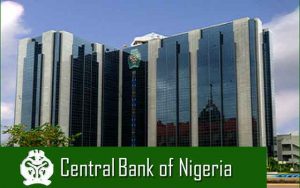
The denial by Nigerian central bank governor Godwin Emefiele that he is planning to end the access of foreigners to open market operation bills (OMOs) has left analysts unconvinced.
The central bank has struggled with the costs of having to sell the debt to stabilise the currency.
Bloomberg on March 2 reported director of monetary policy Hassan Mahmud as saying that sales to non-residents would be phased out once current obligations are redeemed. Emefiele responded by saying that foreigners will not be barred from participating in OMO auctions.
The OMOs have been a profitable kind of carry trade from foreign investors able to access cheap money in dollars or euros and then use it to buy high-yielding debt.
This has led to the Nigerian OMOs being “overexploited” by foreign private individual investors and non-banking firms, says Anaïs Auvray, West Africa consultant at the Africa Matters advisory firm in London.
“This regulatory oversight has resulted in an unexpected rise in liquidity management and administrative costs for the central bank. The associated costs of OMOs outweigh the benefits for the central bank,” she says.
Central bank denials, she says, are because ending access would be an unpopular move with much-needed foreign direct investors. “But at same time their hands are tied – the bank can’t afford to maintain the costs of international OMOs. We expect the central bank to confirm that it will curb non-residents’ access to OMOs within the next two months, despite assurances to the contrary.”
Other analysts expect the change may take longer.
- The mixed signals suggest that a phased exit is “more a medium-term position than something which is imminent,” says Wale Okunrinboye, an investment analyst at Sigma Pensions in Lagos.
- In November 2019, the central bank stopped domestic non-bank financial institutions from investing in OMO bills and unwound OMO liabilities held by that class of investors over 2020, Okunrinboye says. The unwinding is likely to have continued in the first two months of this year, he adds.
- “Essentially, the central bank bore the costs of ensuring FX stability but their actions since November 2019 suggests that the toll on central bank finances was becoming too burdensome.”
Carry Trade
Chances are that there will be “significantly reduced OMO issuance going forward” given the central bank’s concerns around the size of the debt, says William Attwell, senior country risk analyst at Fitch Solutions in London. “Large OMO holdings by offshore investors leave the economy vulnerable to outflows,” he says.
Lack of access to OMOs will leave foreign investors needing to find new sources of yield as the carry trade dries up. Okunrinboye says the next best option would most likely be Egypt, which has high foreign exchange reserve levels are high, positive real returns and “some commitment to managing the exchange rate within reasonable levels.”
- According to HC Securities & Investment in Cairo, Egypt’s carry trade at the end of February offered a real interest rate of 4.1% over 12 months.
- Other African carry-trade candidates are Ghana and Uganda, Okunrinboye says. These also offer positive real interest rate differentials, but are more risky than Egypt as they have lower foreign currency reserves and higher tolerance for currency depreciation.
Bottom Line
Foreign investors will need to find new carry trades as the days of naira OMOs are numbered.
Nigeria still likely to end foreigner access to OMO bill sales (theafricareport.com)


